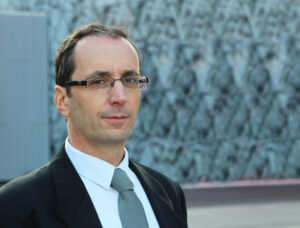My mandate as Dean of FSTM started in October 2018 and will end on 20 October 2023. Serving the FSTM community and contributing to the Faculty’s growth during these five years has been a distinct privilege.
We can take pride in our accomplishments over this period, despite facing considerable challenges, including the COVID-19 crisis of 2020 and 2021, as well as significant budget constraints both at the start and conclusion of my term. Nevertheless, the Faculty has made substantial strides in enhancing the quality of its research, improving its teaching programmes, increasing student enrollment, and expanding its societal engagement.
I am especially proud of our success in attracting and retaining talented colleagues across all departments. These individuals have brought fresh skills, innovative research directions, new ideas, and an exceptional level of energy to the Faculty. Thanks to the contributions of both our new and existing professors, the Faculty’s research activities have flourished. As a result, the University of Luxembourg has now firmly established itself on the European and international stage as a small but dynamic center in various scientific and technological fields, with a strong, and sometimes even leading activity in several areas. This qualitative transformation is evident in numerous quantitative indicators: between 2018 and 2022, the number of FSTM publications nearly doubled, from less than 400 to nearly 800, with a corresponding increase in top-tier journal publications. During the same period, external funding soared by 150%, allowing for an important increase in the scientific activity.
Simultaneously, our teaching programmes have witnessed a remarkable improvement and gained greater recognition. Several of our Bachelor’s programmes now attract a growing number of high-achieving students from Luxembourg and the greater region, while several of our master programmes now attract many hundreds of applications and can select excellent candidates. Our Doctoral School, DSSE, provides training and support to over 600 registered PhD candidates. The Faculty has also developed a robust activity in outreach in many forms: science communication towards the general public, as well as collaboration in industry, for instance through two industrial chairs.
The advancements we’ve seen in research and teaching have been made possible by the dedication, expertise, and drive of our academic colleagues, including professors, postdocs, and PhD candidates. Equally vital has been the extraordinary energy and efficiency of the administrative support staff, comprising administrative assistants, study programme administrators, research facilitators, communication officers, financial controllers, and many others. It has been a true pleasure to work alongside such dedicated colleagues, united in our pursuit of a common mission: fostering research and higher education in science and technology in Luxembourg.
I wish to extend my heartfelt thanks to my closest collaborators: Serge Haan, who, as Vice-Dean, assumed many critical responsibilities for the Faculty; Frédérique Perrein, who has overseen the Faculty’s administration with remarkable efficiency while maintaining a human touch that we all value; and Ludger Wirtz, whose contributions to some of our most challenging tasks at the beginning of the period have been very valuable. I’m also grateful to the other members of the Faculty team and to the department heads, with whom collaboration was consistently constructive, efficient, and enjoyable.
Jean-Marc Schlenker
